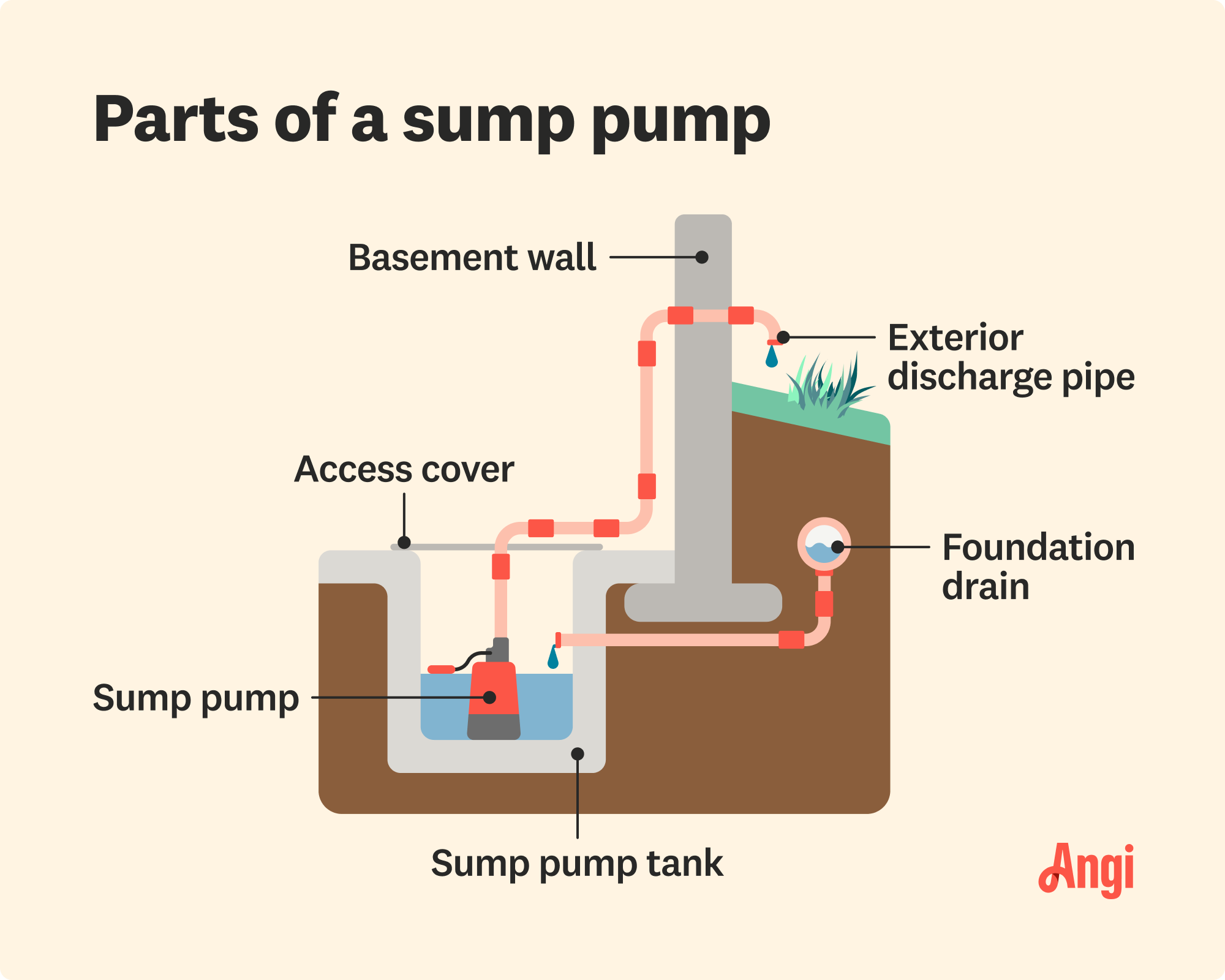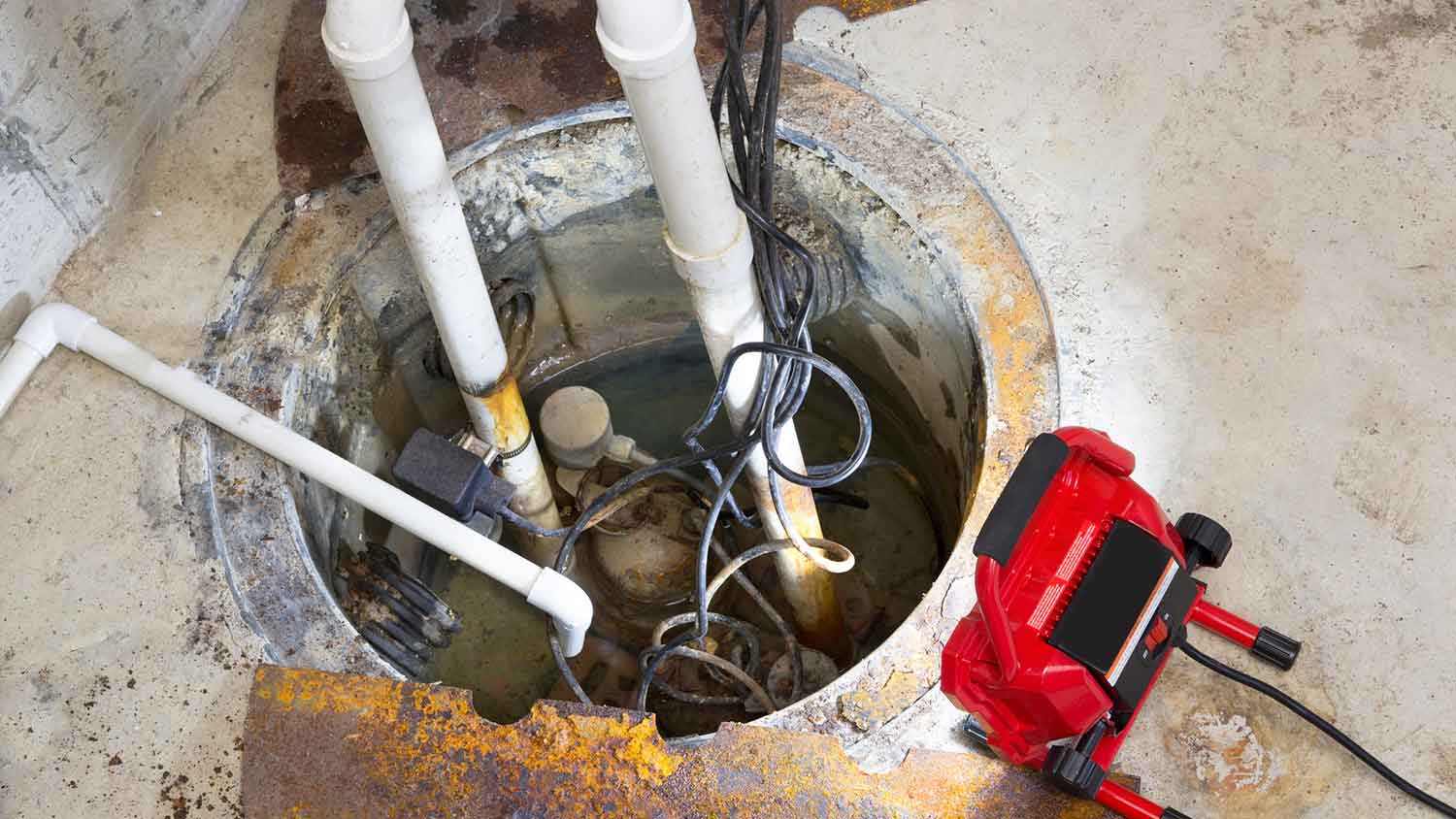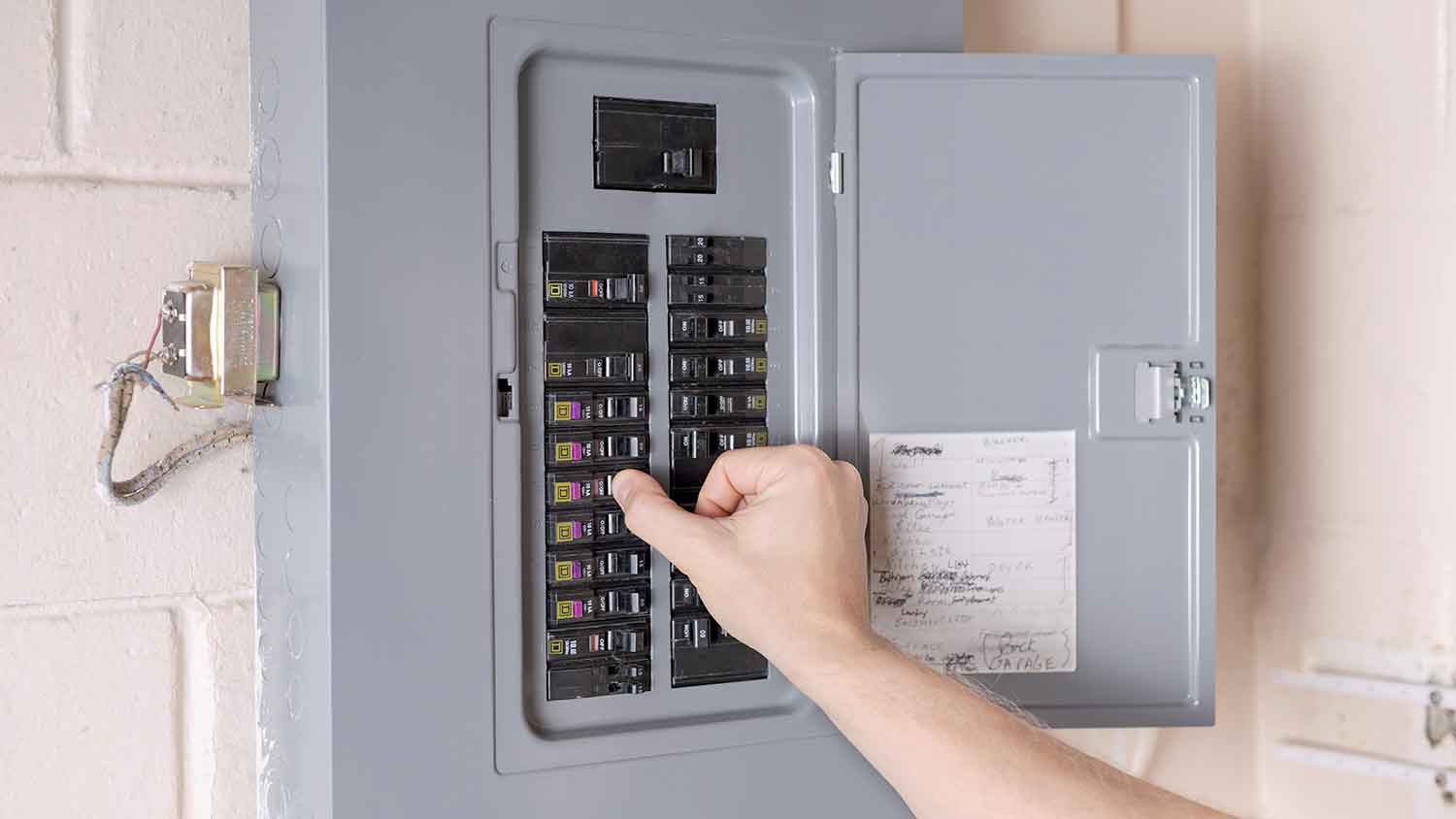6 Reasons Why Your Sump Pump Is Tripping the Breaker
When your circuit breaker can’t take the shock


A sump pump is an appliance that removes water from the lowest point in a house, such as a basement or crawl space.
Sump pumps should be installed on a designated circuit to prevent tripping the breaker.
Clogged sump pits and impellers can cause breaker trips.
On average, your sump pump should last seven to 10 years before needing a replacement.
A sump pump replacement generally costs $45 to $200 per hour.
When your sump pump keeps tripping the breaker, the minor inconvenience can spiral into a major downpour of problems. Sump pumps are meant to prevent floods, but their issues may trigger your waterworks. From clogged parts to overworked circuits, there are several reasons why your sump pump might be pulling the plug on itself. Read on to learn why your sump pump is tripping the breaker and how to handle it.
What Is a Sump Pump?
A sump pump is an appliance that removes excess water from your basement or crawl space. The sump pit—strategically placed at the lowest point of your house—collects water. When the water rises to a certain level, the sump pump springs into action, pushing the excess water out and away from your home’s foundation. This prevents potential flooding, water damage, and mold and mildew growth. If you live in an area prone to flooding or heavy rainstorms, a sump pump acts as an added layer of defense to protect your home.
If your sump pump frequently trips the breaker, it’s worth investigating so you can fix the issue and ensure your property stays protected.

Overloaded Circuit
All roads lead to an overloaded circuit. When a sump pump draws more current than the circuit can handle, it causes an overloaded circuit that trips the breaker. This excess current generates tons of heat, putting both the pump and wiring at risk of damage. The heat generated by an overloaded circuit also poses a serious fire hazard.
An overloaded circuit can be pretty common, especially when a sump pump shares the circuit with other household appliances. If the appliance uses a lot of electricity, like an HVAC unit or water heater, the combined load will trip the breaker.
To avoid an overload, put your sump pump on a dedicated circuit to isolate it from your other appliances. Frankly, all major home appliances should have their own dedicated circuit. If you need to install a new one, skip the DIY and leave this challenging project up to a licensed electrician.
Clogged Sump Pit

A sump pit, sometimes called the sump pump basin, is the lowest part of a basement or crawl space. It collects and stores excess water before it’s pumped out of your home. When the sump pit becomes clogged with dirt, leaves, and other debris, it slows down the flow of water, forcing the pump to work harder to remove it. It’s like trying to drink a milkshake through a narrow straw. The pump has to work harder to get rid of this extra sludge, which requires more electrical power. This surge can quickly overload the circuit and trip the breaker.
If you notice your sump pump trips the breaker a few minutes after it starts running, you may be dealing with sediment or debris buildup. Annual maintenance on your sump pump should help it last longer, but you should pencil a monthly cleaning into your schedule to clear the sump pit of dirt and debris.
Blocked Impeller
Think of a sump pump impeller as the opposite of a propeller—instead of pushing things away, it pulls them in. The impeller draws water from the sump pit and sends it through the discharge pipe. And just like the sump pit, the impeller can get blocked by dirt and debris. When the impeller is obstructed, it forces the sump pump to work harder. And the pattern continues—the pump works harder, the electrical demand increases, and then, the breaker trips.
If your impeller is blocked, turn off the pump's power. Remove the sump pump from the pit, and use a soft brush or cloth to clean the impeller gently.
Cracked or Damaged Seals
A sump pump’s seals are designed to keep water out of the pump’s internal housing. If these seals become cracked, damaged, or loose, water can seep into the pump’s electrical parts, causing a short circuit that trips the breaker. This safety mechanism is actually the norm for newer circuit breakers. When there’s a short, they’re made to trip to prevent damage. If your breaker trips almost immediately after the sump pump turns on, consider this a flashing neon sign that it’s a short circuit, likely caused by water leaking into the pump.
Check your sump pump to see if the problem is with the seals. If it is, you’ll need to replace them. Replacing sump pump seals isn’t the most challenging DIY project for homeowners, but it does require a delicate touch that may be best left to a professional waterproofing contractor.
Faulty Circuit Breaker

What if the problem isn’t with your sump pump? If your sump pump is frequently tripping the breaker, it might be because the breaker itself is defective. A circuit breaker is supposed to protect your electrical system by shutting off power when it detects a problem. If the breaker itself has issues, it might trip even without an overload or short circuit.
There are several ways to tell that a circuit breaker is bad. You might notice a burning smell coming from the electrical panel, visible damage (scorch marks, tattered wires, etc.) around the breaker, and frequent breaker trips. Ignoring these warning signs can lead to serious hazards, like an electrical fire. If you think your breaker is the issue, you’ll need an immediate fix. You may need to reset your circuit breaker. If that doesn’t stop your breaker from tripping, call up your electrician to remove and replace your circuit breaker as soon as possible.
Overworked Sump Pump
If your sump pump frequently cycles on and off or runs nonstop, it may be struggling to keep up with the water levels. Essentially, it’s overworked and needs a break—or retirement. On average, your sump pump should last between seven and ten years. If your pump is older and working overtime, it’s time to say “goodbye” to your old one and hire a local sump pump installer for a replacement.
The cost to replace a sump pump ranges between $45 to $200 per hour. If your pump is reaching the end of its life, there’s really no sense in repairing it. To make the best decision, consult with a professional. They can tell you whether or not you need to replace your sump pump or if you can get away with a repair.





- Gas Plumbers
- Plumbing Repairs
- Sump Pump Installation
- Wood & Pellet Stove Repair
- Shower Repair
- Wood Stove Services
- Emergency Plumbers
- Fire Sprinkler Contractors
- Perc Test Companies
- Toilet Repair & Installation
- Boiler Repair
- Sewer Line Repair
- Faucet Repair
- Main Drain Camera Companies
- Foundation Drain Installation
- French Drains
- Bathtub Replacement
- Subcontractors
- Storm Drain Contractors
- Affordable Plumbing
- Plumbing & Heating Companies
- Bathroom Repair Services
- Sink Installation
- Commercial Plumber
- Barndominium Builders
- Water Line Repair
- Faucet Installation
- Water Line Installation
- Leak Detection
- How Long Do Sump Pumps Last? Is It Time to Replace It?
- When To Replace a Sump Pump: A Homeowner’s Guide
- What To Do When Your Sump Pump Runs Constantly After Heavy Rain
- Who Installs Sump Pumps? Everything You Need to Know
- Sump Pump Constantly Running? What You Need To Know
- What to Do When A Sump Pump Alarm Goes Off
- Where Does Sump Pump Water Go? A Guide for Homeowners
- 4 Reasons Your Sump Pump Smells Like Sewage (and What to Do About It)
- What Is a Sump Pump and How Does It Work?
- Why Your Basement Still Flooded With a Sump Pump















